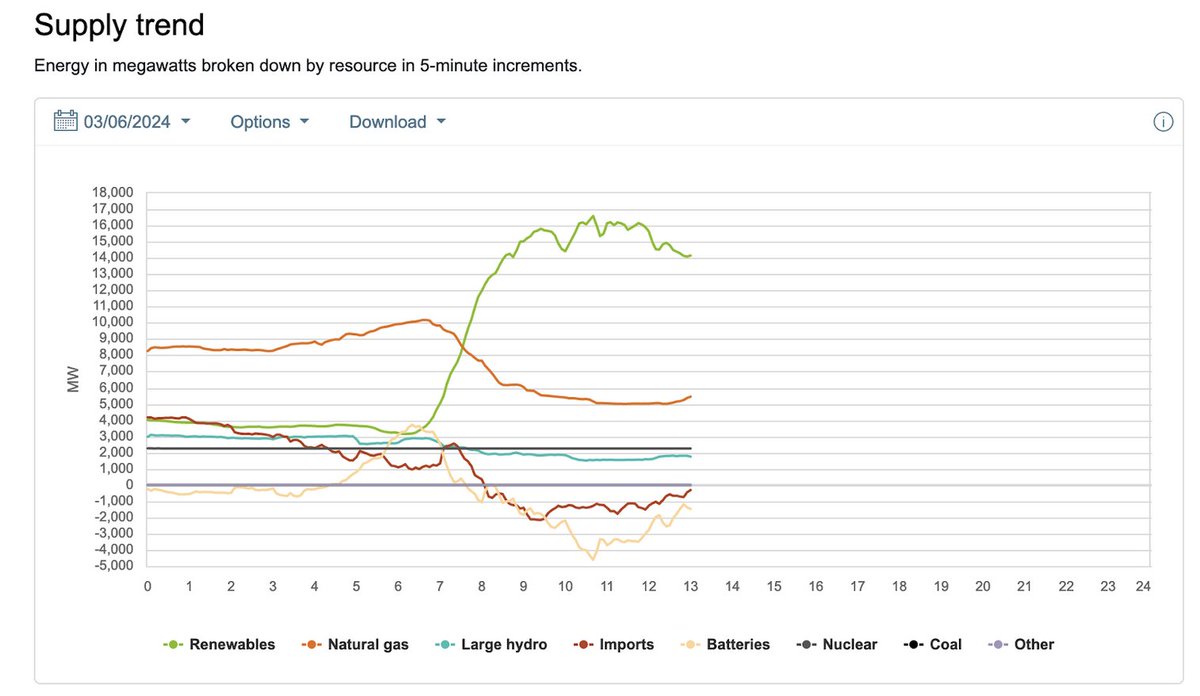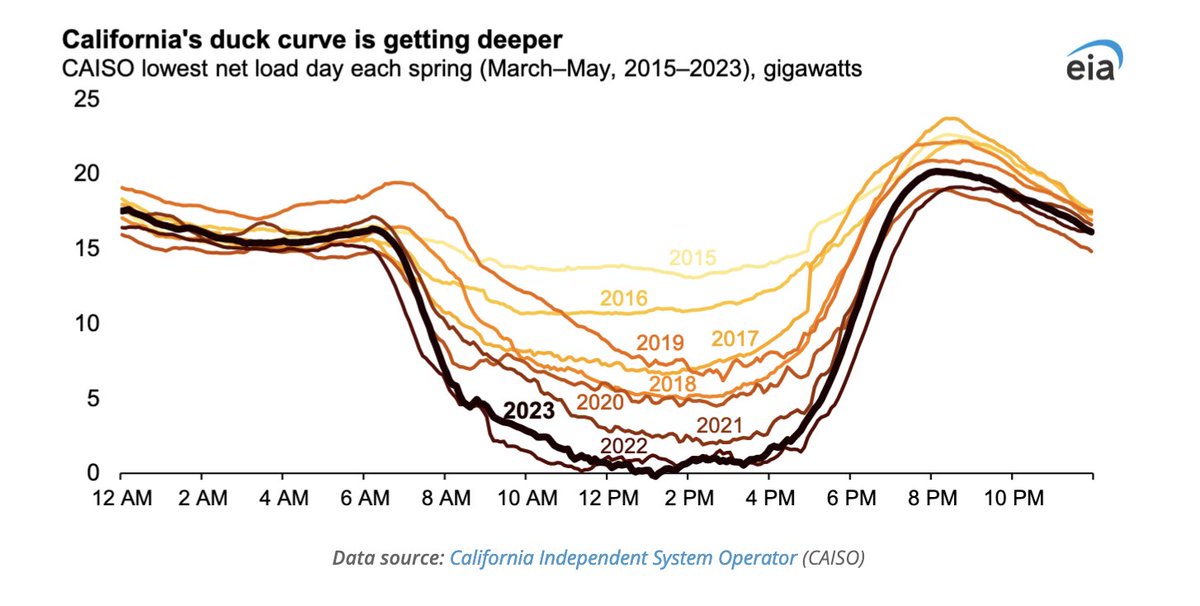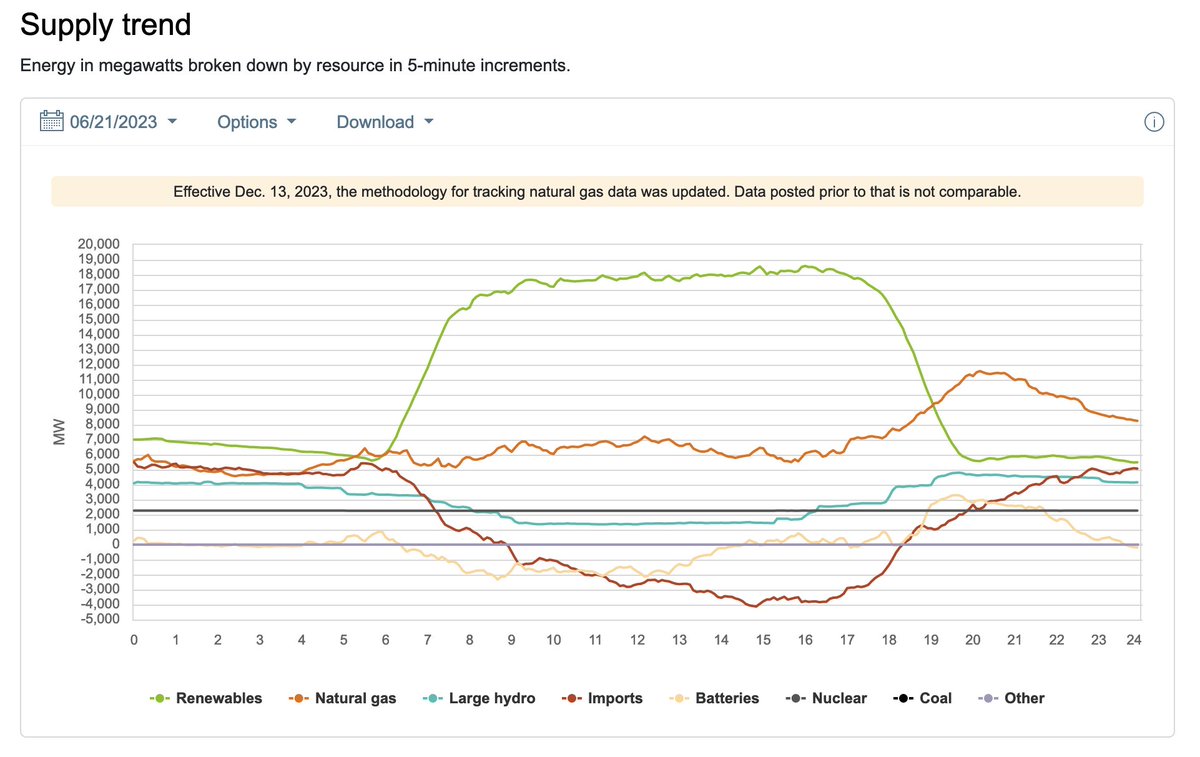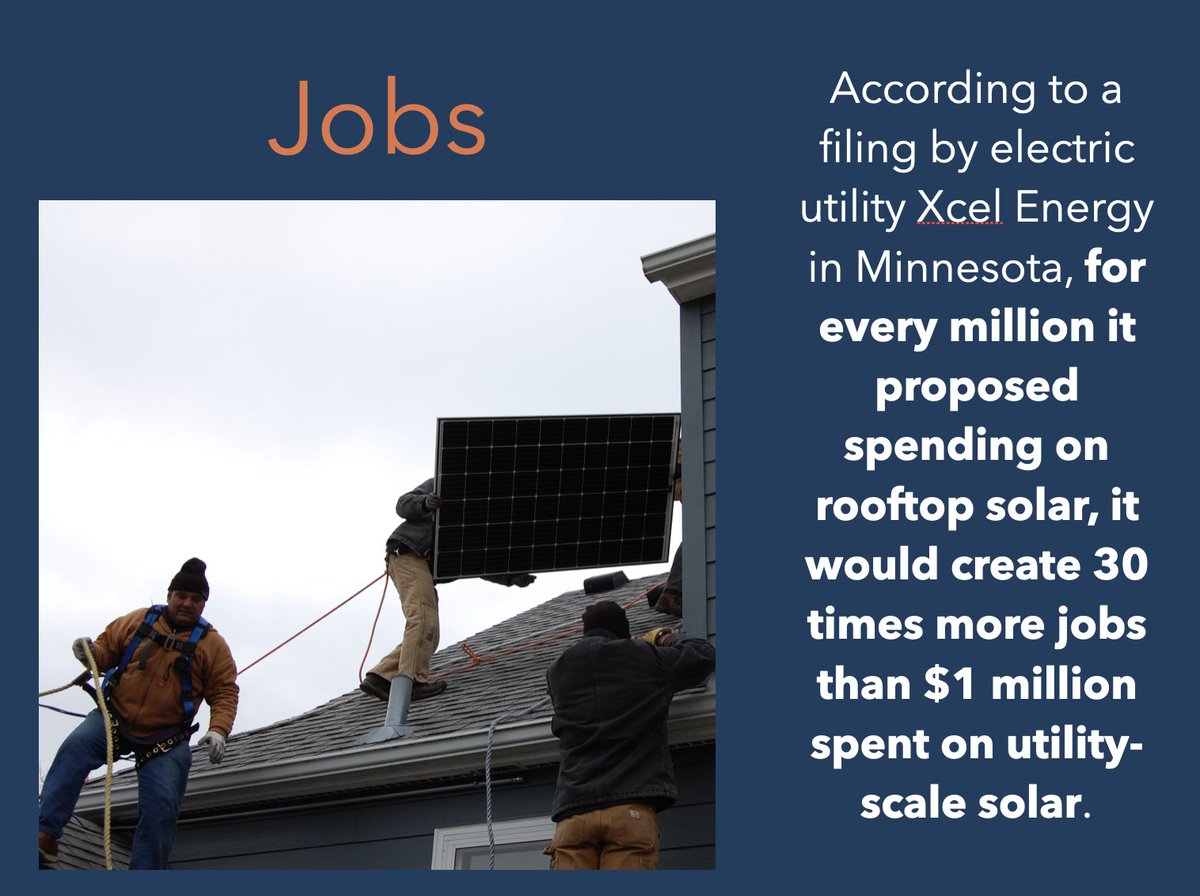Does rooftop solar actually help the climate? Yes. –– A response to the Shift Key podcast discussion between @JesseJenkins and @emilypont that gets a lot wrong about #RooftopSolar. THREAD. #SolarEnergy @robinsonmeyer
1. Rooftop and community solar have comparable costs to utility-scale solar. Jenkins’s argument is based (in part) on a common misunderstanding caused by trying to compare the generation costs of these resources. ilsr.org/investor-owned…
Rooftop solar costs less than you think. It’s not about the cost per watt (although I agree with Jesse that costs need to come down in the U.S.). The cost of rooftop solar to electric customers is set by policy, e.g. net metering, minus the often-ignored non-monetary benefits.
To repeat, pricing rooftop solar requires looking at how solar owners receive compensation, and accounting for its benefits. Minnesota’s value of solar formula gives us some insight on these rooftop solar benefits. ilsr.org/minnesotas-val…
What do solar customers get paid? For example, as a rooftop solar owner in Minn., net metering policy means I save approximately 15 cents per kilowatt-hour that I avoid using from the utility –– the same price to deliver to the same place. #SolarFairness
Rooftop solar provides distinct benefits that lower the real cost to electric customers! According to Minnesota’s value of solar analysis, my rooftop solar also saves the utility 2.4 cents per kilowatt-hour in avoided transmission and distribution costs. drive.google.com/file/d/1tgLXBJ…


Because of the grid benefits of local solar, I reduce my energy bill by 15 cents per kilowatt-hour, but the cost to other customers is only 12.6 cents per kilowatt-hour. And because the state’s value of solar undercounts the social cost of carbon, I’m likely underpaid.
In contrast, utility scale solar costs customers at least double the number you’ve likely seen. Utility-scale solar needs transmission and land access, it requires repaying debt financing, it means profits for developers or utilities. Dive in @ilsr: ilsr.org/investor-owned…
Utilities lie to lawmakers and the public about utility scale and rooftop solar costs, and take advantage of the complexity of the comparison. Climate advocates don’t need to fuel their agenda when the costs (to grid customers) are often comparable.
2. As expected, rooftop solar displaces fossil fuel power and reduces carbon emissions. In the Midwest, for example, the marginal fuel being displaced when solar electricity produces is typically natural gas or coal (see link).
pv-magazine-usa.com/2022/07/12/min…
pv-magazine-usa.com/2022/07/12/min…
The grid almost always has some fossil fuel resource that’s producing and that will be displaced by a new solar project. Here’s the supply curve from this week, March 6, in California. Solar ramps up, gas ramps down. caiso.com/todaysoutlook/…


3. Solar helps reduce peak electricity use in summer because the hottest days (spiking A/C demand) are sunny days. In Calif., solar has steadily supplanted daytime electricity supply from all other sources. cleantechnica.com/2023/07/07/cal…


3a. Notably, the expensive evening peak demand is also falling in California, in part due to solar-charged batteries dispatching in the evening hours.
4. The U.S. needs all the solar we can get – it’s premature to pit rooftops against utility-scale solar. On the summer solstice in 2023, California’s grid manager reports 7 gigawatts of gas power plants still operating even during peak solar hours. caiso.com/todaysoutlook/…


If California has room for more solar (on the sunniest day of the year), so does pretty much every other place in the U.S. Let’s worry about solar v. solar when we have enough to zero out fossil fuel use, eh?
5. Until then, we need more of all solar and better policy to align it with grid needs. Do all electric resources compete on value? Jesse singles out rooftop solar for reducing the value of utility-scale solar, but only because he’s using the wrong cost comparison.
6. Utility-scale and local solar are also completely different markets. Big solar is driven by state mandates and utility procurement w transmission interconnection. Rooftop solar is an individual decision about energy bills and self-reliance. Why do we keep comparing them?
This podcast interview flies under the banner of affordable climate progress, but it is likely to undermine both affordability and climate progress because it feeds the #monopoly, investor-owned utility narrative aimed at crushing #RooftopSolar.
Utilities use similar false financial comparisons to win policies that restrict competition from rooftop solar. Meanwhile, utilities stall transmission deployment, hinder interconnection, & consolidate political power –– power moves with high costs to consumers and the climate.
Rooftop solar doesn’t just offer an affordable, bottom-up driven climate solution, it also offers one of the few alternatives to a broken corporate, monopoly model of electricity distribution...
Utilities built the polluting power plants, sited them in Black and Brown communities, jacked rates to support out-sized profits, and shut off the power to millions each year. Breaking free from #monopoly while solving climate change? Now that’d be worth an extra dollar or two.
@threadreaderapp unroll
• • •
Missing some Tweet in this thread? You can try to
force a refresh









